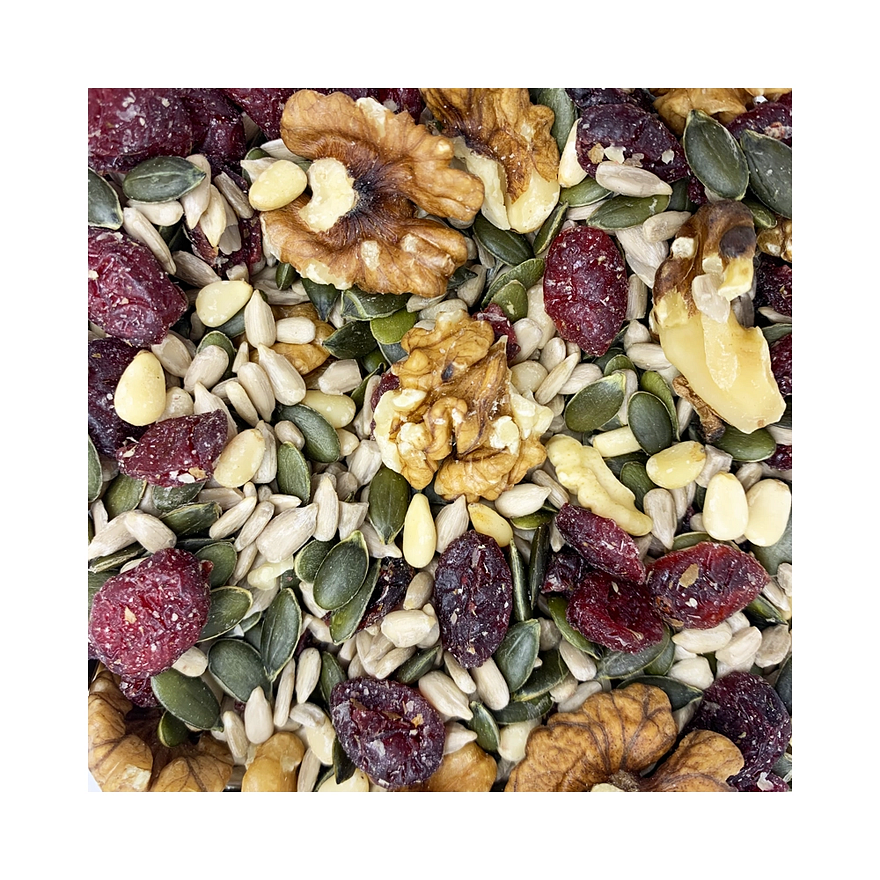Seeds are often overlooked in the world of nutrition, but these tiny powerhouses are packed with essential nutrients that can provide numerous health benefits. Whether you’re sprinkling them on your breakfast, blending them into a smoothie, or using them in baking, seeds are a versatile and easy way to boost your daily nutrient intake. At Grape Tree, we understand the importance of incorporating seeds into your diet, and we offer a wide range of high-quality seeds to help you do just that.
What Are Seeds?
Seeds are the reproductive part of a plant, capable of growing into a new plant. They are rich in nutrients because they contain all the essential elements needed for the initial stages of plant growth. These nutrients are not just beneficial for plants but are also highly valuable for human consumption.
Nutritional Benefits of Seeds
Seeds are a concentrated source of vitamins, minerals, fibre, protein, and healthy fats. Each type of seed has its unique profile of nutrients, but generally, seeds are rich in:
- Healthy Fats: Seeds like flaxseeds and chia seeds are high in omega-3 fatty acids, which are essential for heart health and brain function.
- Protein: Seeds are a great plant-based source of protein, making them a valuable addition to vegetarian and vegan diets.
- Fibre: Seeds such as flaxseeds and chia seeds are loaded with fibre, which aids digestion and helps maintain a healthy weight.
- Vitamins and Minerals: Seeds are rich in essential vitamins and minerals, including magnesium, zinc, and vitamin E, which are crucial for overall health.
Popular Types of Seeds and Their Benefits
1. Flaxseeds
Flaxseeds are one of the richest sources of omega-3 fatty acids, which are known for their anti-inflammatory properties. They are also high in lignans, which are plant compounds that have antioxidant and oestrogenic properties. Flaxseeds can help reduce cholesterol levels, improve digestion, and support heart health.
How to Use: Flaxseeds can be added to smoothies, sprinkled over cereal or yogurt, or used in baking. It’s best to grind them before consumption to ensure you get the most nutritional benefit.
2. Chia Seeds
Chia seeds are another excellent source of omega-3 fatty acids, as well as fibre and protein. They absorb liquid and form a gel-like consistency, which makes them a popular ingredient in puddings and smoothies. Chia seeds can help stabilise blood sugar levels, support digestive health, and provide a sustained energy boost.
How to Use: Mix chia seeds with water or milk to create a chia pudding, or add them to smoothies, salads, or baked goods.
3. Sunflower Seeds
Sunflower seeds are a rich source of vitamin E, an antioxidant that helps protect cells from damage. They are also high in magnesium, which is important for bone health and energy production. Sunflower seeds can support heart health, reduce inflammation, and promote healthy skin.
How to Use: Sunflower seeds can be eaten as a snack, added to salads, or used in baking. They can also be ground into sunflower seed butter as a nut-free alternative to peanut butter.
4. Pumpkin Seeds
Pumpkin seeds, also known as pepitas, are packed with magnesium, zinc, and healthy fats. They are particularly beneficial for men’s health, as they may help support prostate health. Pumpkin seeds are also known for their anti-inflammatory properties and can aid in promoting restful sleep.
How to Use: Pumpkin seeds can be eaten on their own, added to granola or salads, or used as a topping for soups and stews.
5. Hemp Seeds
Hemp seeds are a complete source of protein, containing all nine essential amino acids. They are also rich in omega-3 and omega-6 fatty acids, which are important for heart health. Hemp seeds can help support muscle growth, improve heart health, and provide a good source of energy.
How to Use: Hemp seeds can be sprinkled on salads, added to smoothies, or mixed into yogurt. They can also be used to make hemp milk, a nutritious dairy-free alternative.
Incorporating Seeds into Your Diet
Adding seeds to your diet is simple and can be done in a variety of ways. Here are some easy tips:
- Smoothies: Add a tablespoon of flaxseeds, chia seeds, or hemp seeds to your morning smoothie for an extra nutritional boost.
- Baking: Incorporate seeds into your baking recipes, such as adding sunflower seeds to bread or muffins.
- Snacking: Keep a mix of seeds on hand for a quick and nutritious snack.
- Salads: Sprinkle seeds like pumpkin or sunflower seeds over your salads for added crunch and nutrition.
- Cereal and Yogurt: Mix seeds into your cereal or yogurt for a nutrient-dense breakfast.
Why Choose Grape Tree?
At Grape Tree, we are committed to providing the highest quality seeds that are both nutritious and delicious. Our range includes a variety of seeds to suit all tastes and dietary needs, from flaxseeds and chia seeds to pumpkin seeds and sunflower seeds. We source our seeds from trusted suppliers and ensure they are fresh and packed with nutrients.
By choosing Grape Tree, you can be confident that you’re getting the best seeds available, helping you to enhance your diet and support your overall health. Whether you’re looking to boost your omega-3 intake, increase your protein consumption, or simply add more nutrients to your meals, our selection of seeds has something for everyone.
Conclusion
Seeds may be small, but they are mighty when it comes to their nutritional value. Incorporating seeds into your diet is an easy and effective way to improve your overall health. At Grape Tree, we offer a wide range of seeds that can help you achieve your nutritional goals. Visit our website at Grape Tree Seeds to explore our full range and start reaping the benefits of these tiny nutritional giants today.





Comments